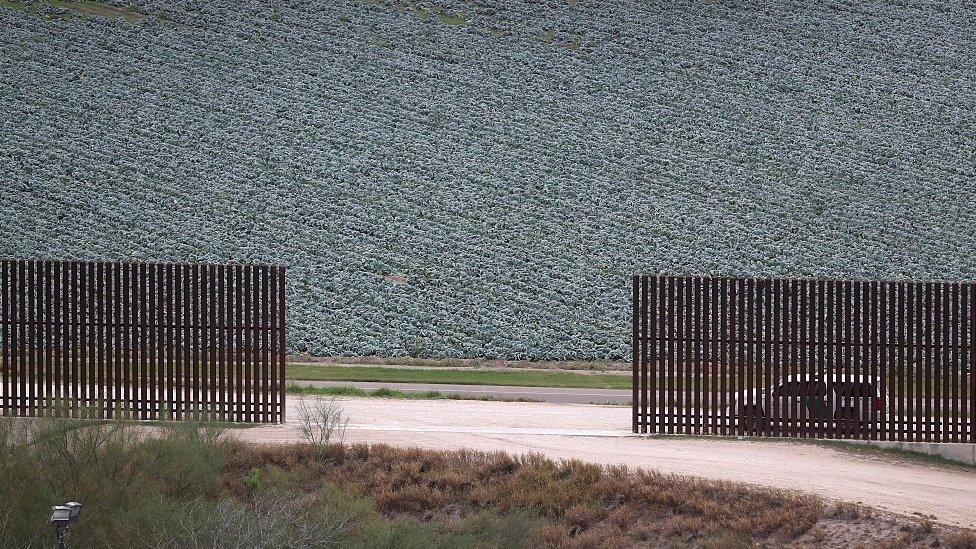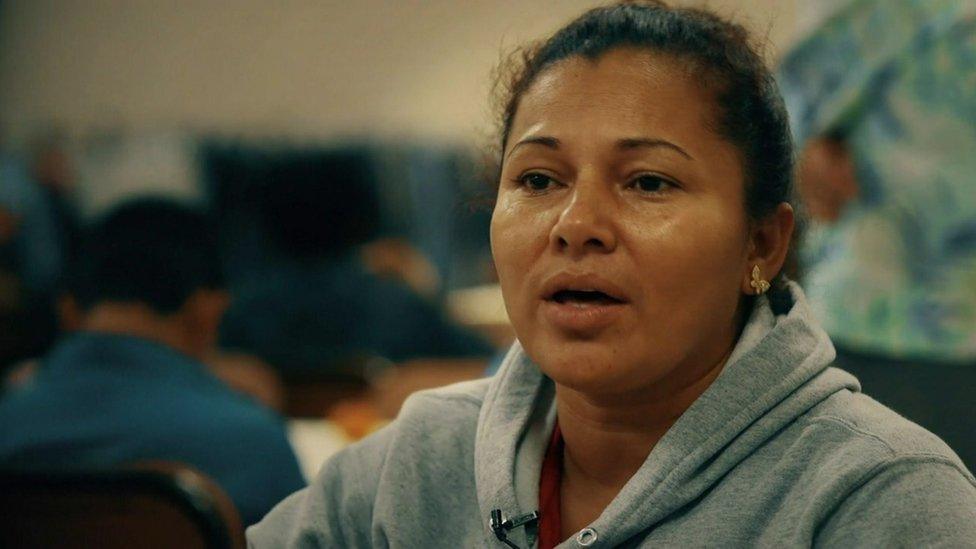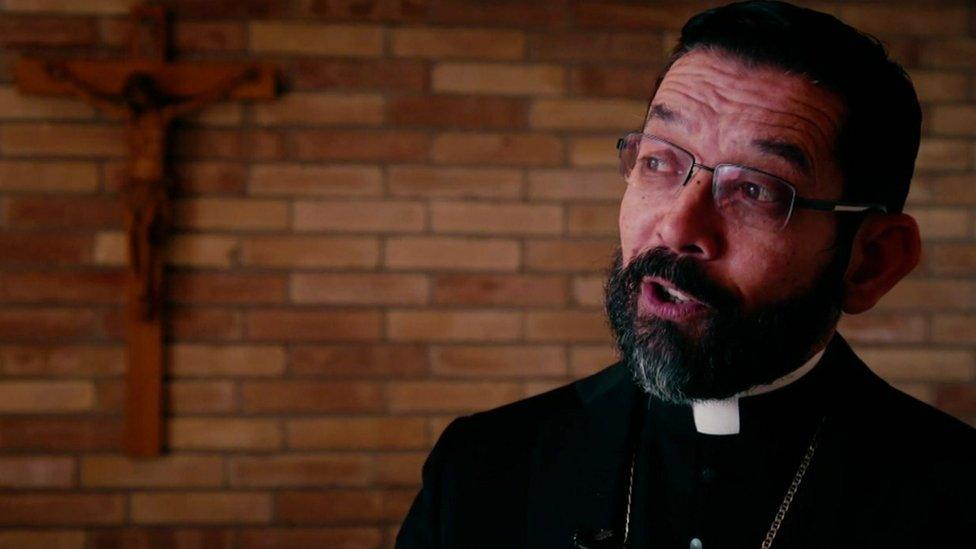Border town divided on Trump's wall
- Published
Border rules: Texans fight over Trump's border wall
It's rodeo season in San Antonio, deep in the heart of Texas.
In the middle of a packed arena a cowboy clings on to a wildly bucking bronco.
This is a state with a proud heritage — and proud people.
Texans will tell you they're God-fearing, cattle-rearing, straight-talking folk, and while inside the ring it's strictly apolitical, outside they don't mince their words.
"Wall it up," says one Texan simply, when asked about President Trump's plans for the border. "We don't need the criminals in here. Wall it up."
"The wall probably will never happen," says Kade Thigpen, "just because of geography. That simple."
"There's definitely some security measures that might be put in place that will hopefully help alleviate some of the illegal immigrants," says Mr Thigpen's wife, Kelley "but, you know, we need immigration."

Another rodeo fan, Billie Martz, talks of "wets" (a racist term referring to Mexicans who swim or wade across the Rio Grande) running up towards his truck.
"Most of the time they need water but you do see some carrying fully automatic weapons and you'd better just keep on going," he says with a smile.
On the border itself it's just as complicated.
"The facts have not changed," says Republican congressman Will Hurd whose West Texas district encompasses more than 800 miles (1,290km) of the border.
"Building a wall is the most expensive and least effective way to secure the border."
The wall, he warns, would "negatively impact the environment, private property rights and economy."
He's not the only conservative opponent of the president's plans.
In Texas, much of the land along the border is privately owned, and a 1970 treaty with Mexico, external prevents the construction of structures interfering with the flow of the river or its floodwaters.
Many ranchers are deeply reluctant to see a barrier slicing through their fertile fields on the Rio Grande. Landowners have fought previous plans for border barriers in the courts and may do so again.
Rancher Casey Worrell said the wall would take "prime real estate" used for livestock. He said some farmers on the border would rather pay Mexico to host the wall rather than, as President Trump proposes, the other way around.
As for immigration, while the perception may be of Mexicans pouring over the border, official statistics tell a more nuanced story.
In the weeks before the presidential election, then-Homeland Security Secretary Jeh Johnson said "far fewer Mexicans and single adults are attempting to cross the border without authorisation but more families and unaccompanied children are fleeing poverty and violence in Central America".
In fact, according to the US government, Central Americans apprehended on the southern border outnumbered Mexicans in 2014 and again in 2016.
According to the Pew Research Center, external, "unauthorised immigration" from Mexico "has steadily declined" since the start of the Great Recession in 2007.
This accords with the experience in McAllen, Texas. The town lies less than 100 miles from the eastern end of the 1,954 mile border where the Rio Grande empties into the Gulf of Mexico.
Across the divide every month come thousands of children like Yeneli Castillo Figueroa, not from Mexico but from Central America. She is just three years old and has been on the road with her family from Honduras for 13 perilous and terrifying days.
Like everyone arriving here during our visit, her mother, Jesenua Figueroa Nuillo, 40, says violence and poverty forced her to flee.
The journey "was hard because when you're an adult you understand," she told the BBC, in Spanish, "but babies get scared and they cry".

"There are parts of the forest where you walk in the dark. And when the police came my little girl knew she had to hide under the luggage and stay quiet."
Yeneli's big brother Dairin Castillo Figueroa, 17, agreed that the journey was tough but insisted it was worth it.
"It was cold and we shivered," he said, in Spanish, "but we had to endure it for the American dream, for a better life."
Many of the new arrivals hand themselves over to border security and are given an electronic ankle bracelet and a court date which they will use to seek asylum in the United States.
President Trump has suggested ending this policy known as "catch and release" either by building new detention centres or, it is now being reported by forcing them back over the border to Mexico, external, even if they are not Mexican citizens, a controversial approach which is certain to face legal challenges.
Many of the refugees enjoy their first hot meal in the United States along with a hot shower and the opportunity to select new clothes thanks to donors and volunteers at the Roman Catholic Church of the Sacred Heart in McAllen, external.
In fact it is the church which is making a stand in favour of the migrants on a wider stage.
Last week more than 20 bishops from Texas and Mexico gathered in the town for a cross-border conference. The treatment of immigrants was high on the agenda.
Daniel Flores, the bishop of Brownsville says a secure border with Mexico depends on solving problems further south, particularly in Honduras, Guatemala and El Salvador.
"People have a right to live in conditions in their own county where they are safe and secure and can provide for their children," he argues, adding that when those conditions are absent "there's something seriously wrong."

The answer, says the bishop, is "a hemispheric response".
Back in McAllen they know full well how intertwined the fates of Central America, Mexico and the US have become.
People don't just come here for a better life, they also like to shop.
The town relies heavily on Mexican trade and tourism. Its mayor, Jim Darling - who insists he is neither Republican nor Democrat - says that President Trump's tough talk is already having a chilling effect.
"You're affecting other people's pride and that has a backlash and unfortunately we're feeling the backlash not Washington DC," says the mayor.